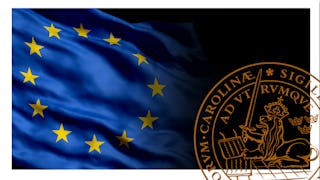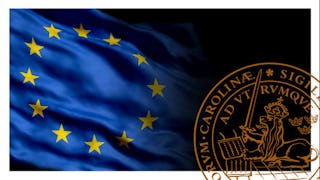All citizens in the EU are granted a European Citizenship on top of their national citizenship. Which rights and opportunities does this supra- and transnational citizenship provide? And what are the challenges and dilemmas of the two-level citizenship – for individuals, for the member states and for the union? This course examines the development, the scope and the challenges of European Citizenship.



European Citizenship – Development, Scope, and Challenges



Instructors: Dorte Sindbjerg Martinsen
2,621 already enrolled
Included with 
(64 reviews)
Recommended experience
Skills you'll gain
Details to know

Add to your LinkedIn profile
13 assignments
See how employees at top companies are mastering in-demand skills

There are 3 modules in this course
Although European citizenship was established with the Treaty of Maastricht, which entered into force in 1993, its development and reasoning originate back to the Treaty of Rome in 1958 with free movement for workers and the historically more limited right to cross-border welfare. Since its establishment, the substantive rights of European citizenship have grown, not least through the Court of Justice of the European Union as an important institutional entrepreneur. In this lecture, the development and current status of European Citizenship will be explored by discussing core rights such as equal treatment, free movement, cross-border welfare, and political rights in terms of the European Citizens’ Initiative.
What's included
5 videos6 readings5 assignments1 discussion prompt
This second module further explores the scope of European citizenship, but adds the limits that materialize when rules and rights are applied in practice. We will look into pension, healthcare and family benefits, youth social integration and protection rights beyond the EU territory, as well as the challenges that might arise due to the inherent multilingualism and multiculturalism of the European Union. This module will seek answers to pertinent questions such as: Is European citizenship unequal in practice? Why is an issue, such as the exportability of family benefits, highly politicized in some member states? How do rights extend beyond the EU territory? What are the more recent developments of European citizenship and does that do away with the critique that European citizenship is a privilege for those on the move, but a rather hollow right for those who stay? Overall, this module aims to understand European Citizenship in context.
What's included
5 videos11 readings5 assignments
The third module turns to the challenges of European citizenship. We will present the two sides of the theoretical debate on whether it makes sense to use the concept of citizenship beyond the borders of the nation state. The theoretical critique will first be presented and then responded to. In addition, we will examine welfare chauvinism as a current political challenge to European citizenship. Finally, the lecture turns to de-Europeanisation of citizenship as a result of Brexit. While the process of de-Europeanisation takes away concrete rights for UK citizens in the Union and for EU citizens in the United Kingdom, the process of de-institutionalization also showcases the substantive scope of a key EU institution, matured through gradual steps of integration.
What's included
4 videos5 readings3 assignments1 discussion prompt
Earn a career certificate
Add this credential to your LinkedIn profile, resume, or CV. Share it on social media and in your performance review.
Instructors

Explore more from Governance and Society


University of Geneva
 Status: Free Trial
Status: Free Trial
Lund University
 Status: Free Trial
Status: Free Trial
Lund University


Utrecht University
Why people choose Coursera for their career




Learner reviews
64 reviews
- 5 stars
85.93%
- 4 stars
10.93%
- 3 stars
3.12%
- 2 stars
0%
- 1 star
0%
Showing 3 of 64
Reviewed on Feb 21, 2023
it's one of the best courses I have ever seen in my life
Reviewed on Nov 19, 2024
I have always been interested in Europe, and this course made me realize, more about what Europe is like.
Reviewed on Nov 2, 2022
Great introduction to the basic rights of EU citizenship and the rules which apply to it.

Open new doors with Coursera Plus
Unlimited access to 10,000+ world-class courses, hands-on projects, and job-ready certificate programs - all included in your subscription
Advance your career with an online degree
Earn a degree from world-class universities - 100% online
Join over 3,400 global companies that choose Coursera for Business
Upskill your employees to excel in the digital economy
Frequently asked questions
Access to lectures and assignments depends on your type of enrollment. If you take a course in audit mode, you will be able to see most course materials for free. To access graded assignments and to earn a Certificate, you will need to purchase the Certificate experience, during or after your audit. If you don't see the audit option:
The course may not offer an audit option. You can try a Free Trial instead, or apply for Financial Aid.
The course may offer 'Full Course, No Certificate' instead. This option lets you see all course materials, submit required assessments, and get a final grade. This also means that you will not be able to purchase a Certificate experience.
When you purchase a Certificate you get access to all course materials, including graded assignments. Upon completing the course, your electronic Certificate will be added to your Accomplishments page - from there, you can print your Certificate or add it to your LinkedIn profile. If you only want to read and view the course content, you can audit the course for free.
You will be eligible for a full refund until two weeks after your payment date, or (for courses that have just launched) until two weeks after the first session of the course begins, whichever is later. You cannot receive a refund once you’ve earned a Course Certificate, even if you complete the course within the two-week refund period. See our full refund policy.
More questions
Financial aid available,


















